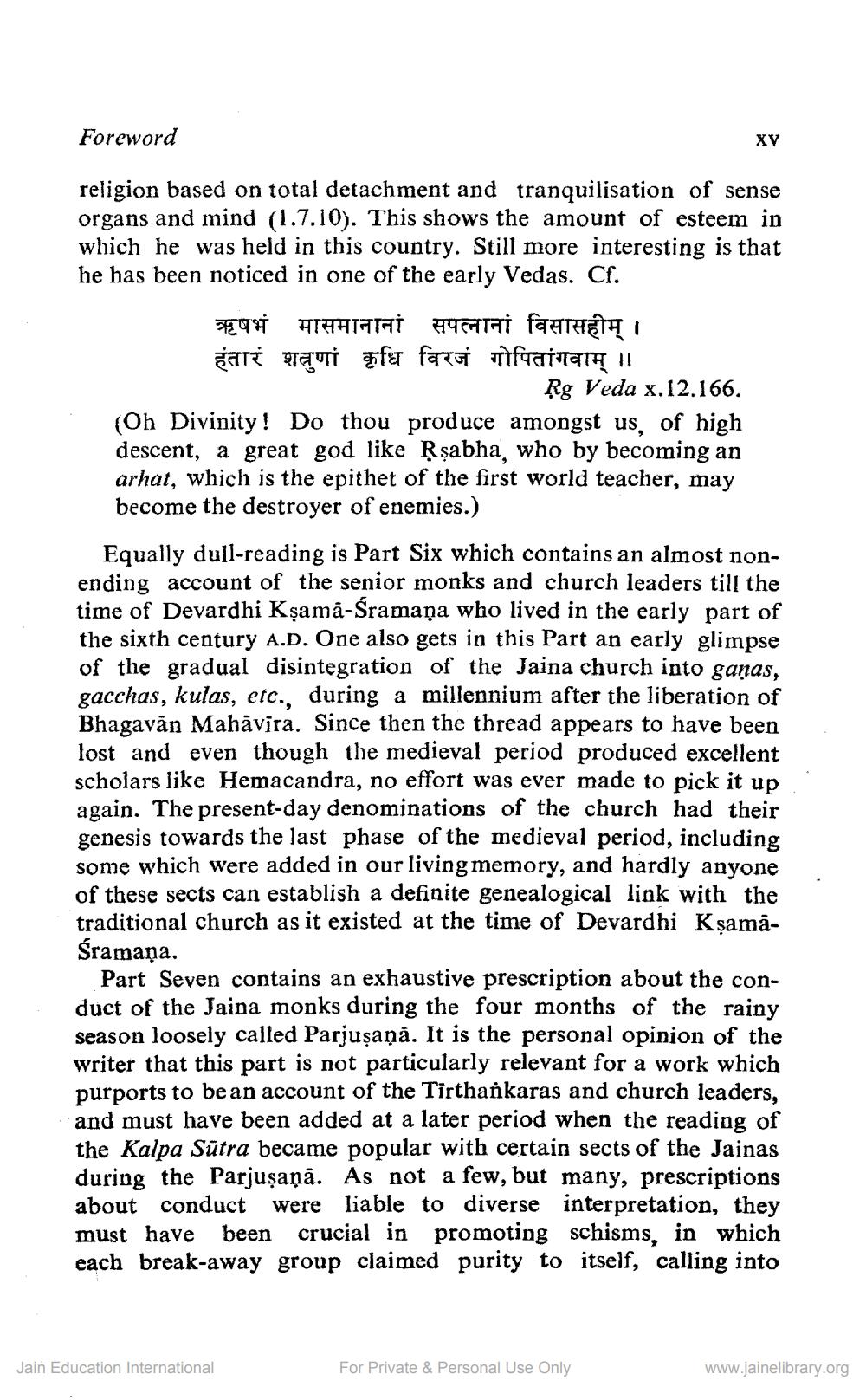________________
Foreword
religion based on total detachment and tranquilisation of sense organs and mind (1.7.10). This shows the amount of esteem in which he was held in this country. Still more interesting is that he has been noticed in one of the early Vedas. Cf.
ऋषभं मासमानानां सपत्नानां विसासहीम् । हंतारं शत्रुणां कृधि विरजं गोपितांगवाम् ॥
Rg Veda x.12.166.
(Oh Divinity! Do thou produce amongst us, of high descent, a great god like Rṣabha, who by becoming an arhat, which is the epithet of the first world teacher, may become the destroyer of enemies.)
Jain Education International
Equally dull-reading is Part Six which contains an almost nonending account of the senior monks and church leaders till the time of Devardhi Kṣama-Śramaņa who lived in the early part of the sixth century A.D. One also gets in this Part an early glimpse of the gradual disintegration of the Jaina church into ganas, gacchas, kulas, etc., during a millennium after the liberation of Bhagavan Mahavira. Since then the thread appears to have been lost and even though the medieval period produced excellent scholars like Hemacandra, no effort was ever made to pick it up again. The present-day denominations of the church had their genesis towards the last phase of the medieval period, including some which were added in our living memory, and hardly anyone of these sects can establish a definite genealogical link with the traditional church as it existed at the time of Devardhi KṣamaŚramaņa.
Part Seven contains an exhaustive prescription about the conduct of the Jaina monks during the four months of the rainy season loosely called Parjuṣaṇā. It is the personal opinion of the writer that this part is not particularly relevant for a work which purports to be an account of the Tirthankaras and church leaders, and must have been added at a later period when the reading of the Kalpa Sutra became popular with certain sects of the Jainas during the Parjuṣaṇā. As not a few, but many, prescriptions about conduct were liable to diverse interpretation, they must have been crucial in promoting schisms, in which each break-away group claimed purity to itself, calling into
XV
For Private & Personal Use Only
www.jainelibrary.org




